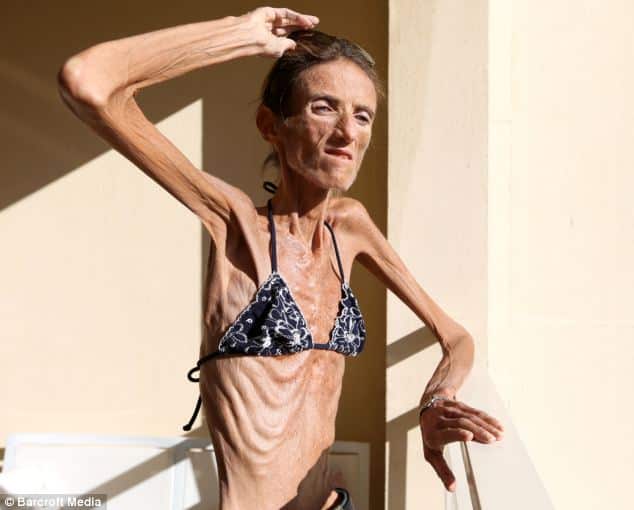A woman who is known for being the thinnest woman in the world, Valeria Levitin, has revealed her heartbreaking journey of overcoming anorexia and shone light on the worrisome trend of persons seeking to replicate her skeleton appearance. In an interview with The Sun, the 39-year-old woman, who was born in Russia but presently resides in Monaco, courageously discusses the matter. She expresses her concerns about being an unintentional inspiration for a dangerous route.
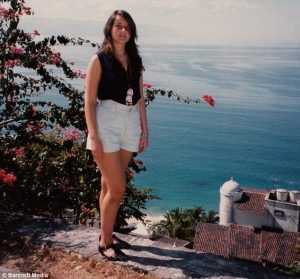
The frightening fan mail that Valeria receives from young girls who aspire to mimic her emaciated appearance is revealed by Valeria. This is a consequence of the troubling beauty standards that are present in society. Due to the courageous stand she has taken against anorexia, she has decided not to be a source of encouragement for a lifestyle that is potentially harmful.
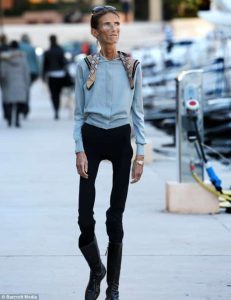
Valeria’s mother’s worries about the possibility of her daughter becoming obese when she was a teenager are the origins of the tumultuous connection that Valeria maintained with her body. Beginning at an early age, she was subjected to restrictive diets, which laid the groundwork for her troubles. Valeria’s teenage years were characterised by tight dietary restrictions, including the exclusion of sweets and carbs. These limitations helped Valeria achieve her goal of gaining approval from her peers.
Her difficulties were made worse by the fact that she entered the world of modelling, as criticisms continued to be made that she was still “too overweight.” She had reached a dangerously low weight of six stone by the time she was twenty-four years old, which made dancing dangerous owing to the possibility of having injuries.
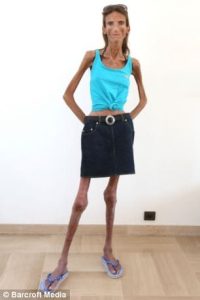
Valeria’s weight dropped to an alarmingly low of three stone ten pounds during the course of the following decade, despite the fact that she sought the advice of more than thirty medical professionals. As a result of her continued intolerance to particular meals, she is unable to ingest them. Additionally, because she has been deprived of bread for such a long period of time, she has completely forgotten the flavour of bread.
Despite the fact that she has been single for ten years, Valeria is having a hard time forging relationships because of her disease. She blames the underlying cause to what she believes to be a “discordance between the body and the soul.” She is bothered by the fact that traditional medical therapies have not been successful in treating her condition.

Currently, Valeria relies on vitamins to reduce the amount of bruising she experiences, and she takes precautions to avoid circumstances that could result in her falling accidentally. She expresses a wish to become a mother through surrogacy as she is contemplating a return to Moscow, where she feels a stronger connection to herself that she has not experienced before. Having said that, she is aware of the necessity of being in a fit enough state to contemplate being a mother.
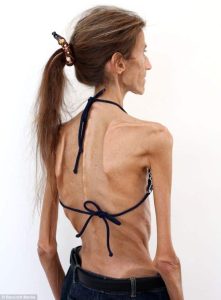
“I’ve never given up on anything in my life, and I’m not about to give up now,” Valeria says, resolutely resisting the hold that anorexia has on her world. Her experience serves as a potent wake-up call, asking society to exercise caution and awareness in the face of the disconcerting attraction to extreme thinness. Her experience is a tremendous wake-up call.
